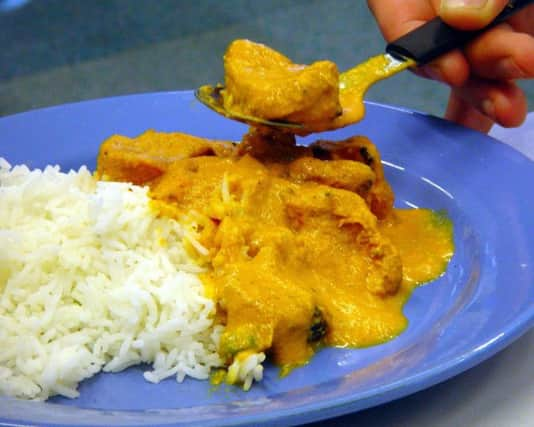Climate threat to UK's favourite dishes


Warmer seas could see populations of cod – long the staple in fish and chips – displaced by other species, potentially leading to an “anchovies and chips” fish supper by mid century, WWF said.
As the world warms, chickens will have to be fed on alternative foods such as algae and insects if soy production is hit by higher temperatures and changes to rainfall, ending the era of cheap chicken.
Advertisement
Hide AdAdvertisement
Hide AdOther key ingredients of a tikka masala, such as rice, tomatoes and onions could all face shortages as a result of changing weather patterns.
In a report published ahead of Earth Hour, a worldwide environmental event this weekend, WWF warned other dishes such as ploughman’s lunch and lamb cawl – a Welsh lamb stew – could also be under threat by 2050.
For a ploughman’s, cheese production could be affected by heat stress on dairy herds which could affect milk yields, while wheat crops for bread could see a fall in quality due to water shortages.
Even the apples that are part of the dish may be softer and sweeter in warmer weather conditions, which may force orchard growing to move north, as trees need a period of cold to ensure good yields.
Dairy farmers face increased volatility in sourcing cattle feed as a result of global changes to weather. Farmers producing lamb face an increase in frequent heavy rain and flooding in the UK, which risks sheep welfare and meat production, and potato crops could fail due to more widespread infestations.
Other increasingly popular dishes such as avocado on toast and even a cup of coffee, are at risk too.
The report also looked at the “carbon footprint” of the four classic dishes – fish and chips, chicken tikka masala, cheese ploughman’s and lamb cawl – to reveal the amount of greenhouse gas emissions associated with producing each meal.
It found the most polluting dish was lamb cawl, as a result of the methane produced during digestion by sheep, followed by the ploughman’s, due to the methane from the cows producing the milk for cheese. The lowest carbon footprint was for fish and chips.
Advertisement
Hide AdAdvertisement
Hide AdGareth Redmond-King, head of energy and climate at WWF said: “The threat to these classic dishes just shows that climate change could impact every aspect of our lives in future if we don’t act now.
“That’s why this Earth Hour we want people to eat more sustainably.”